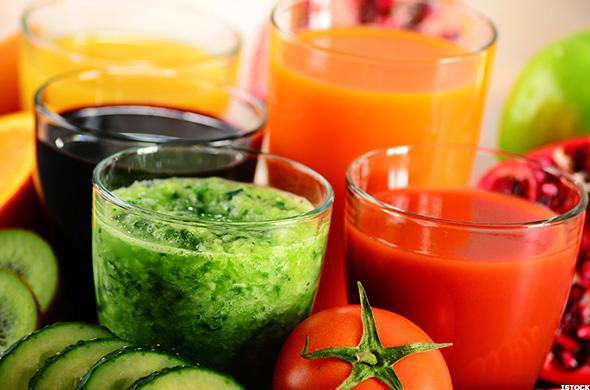Drinking fruit juices and fizzy drinks during pregnancy may increase child's risk of asthma, study finds
Paper says fructose in sugar-sweetened drinks and fruit juice may cause lung inflammation at key developmental stages

Mums who drink lots of fruit juice or fizzy drinks during pregnancy could increasing their child’s risk of developing asthma later in childhood by almost two thirds, according to research.
Children whose mothers drank the equivalent of two cans of a sugary drink or two glasses of fruit juice a day during pregnancy were roughly 63 per cent more likely to be asthmatic than a child whose mum avoided sugary drinks.
It also found similar increased risk based on sugar consumption in early childhood.
The risk increase in children was similar that related to sugar consumption in pregnancy.
The study found the average child drinks around four servings of fruit juice a day, but this ranged from three servings to 10.
The American Society of Paediatrics recommends no more than one or two servings a day.
It also found risks in children and mothers whose diets were high in fructose, the naturally occurring fruit sugar which is a commonly refined and used as food and drink sweetener.
The researchers, from Harvard Medical School, found that this increased risk of developing asthma at ages seven to nine held true when accounting for obesity in pregnancy and childhood.
The study says that the rise in childhood asthma rates in the US since the 1980s is likely to have many causes, but nutrition and obesity levels are widely thought to be important contributors.
The rise coincides with the increasing use of high-fructose corn syrup as a sweetener, and researchers are increasingly showing the damaging impact of sugar on the brain, mental health, and even cancer.
Obesity in childhood is one risk factor, but this study, published in Annals of Oncology, says consuming lots of fructose sugar increases lung inflammation.
This inflammation at key stages of development could lead to later lung problems.
The study used data reported by 1,068 mothers and their children in Eastern Massachusetts, USA, and asked them about sugar consumption in their first and second trimesters of pregnancy.
This included how many cans of drink or glasses of fruit juice they drank, as well as other sweet drinks like hot chocolate.
The mums were followed up when their children were in early childhood, around three years old.
It found that across the group 19 per cent of the children were asthmatic by “mid-childhood”, ages seven to eight.
The study’s lead author, Sheryl L Rifas-Shiman MPH, senior research associate at Harvard Medical School and Harvard Pilgrim Health Care Institute, said little was known about what stages of development sugar intake could influence asthma.
While this study hasn’t conducted an experiment that can link sugar consumption to being the final cause of asthma, Ms Rifas-Shiman said: "Avoiding high intake of sugary beverages during pregnancy and in early childhood could be one of several ways to reduce the risk of childhood asthma."
Join our commenting forum
Join thought-provoking conversations, follow other Independent readers and see their replies
Comments
Bookmark popover
Removed from bookmarks